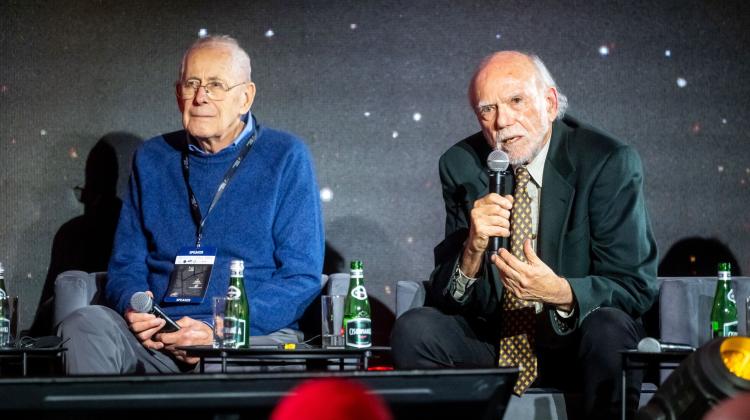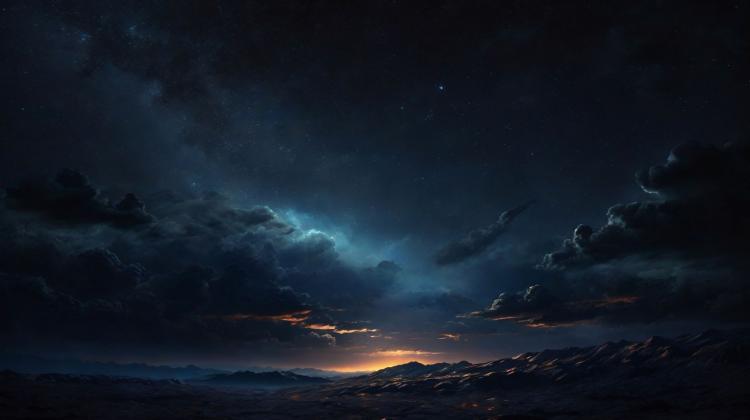Nobel laureates awarded first Copernican Prizes
 20.02.2023. Nobel laureates James Peebles (L) and Barry Barish (R) during a panel discussion at the World Copernican Congress in Toruń. PAP/Tytus Żmijewski
20.02.2023. Nobel laureates James Peebles (L) and Barry Barish (R) during a panel discussion at the World Copernican Congress in Toruń. PAP/Tytus Żmijewski
Nobel laureates Professor Philip James Edwin Peebles and Professor Barry Clark Barish are the winners of the first Copernican Prizes.
The prizes were awarded in the field of astronomy.
Copernican Prizes for outstanding scientific achievements of groundbreaking importance and international range will be awarded every year.
The individual prize amount is PLN 500,000.
Professors Philip James Edwin Peebles and Barry Clark Barish already have Nobel Prizes in physics.
Secretary General of the Copernican Academy, Professor Krzysztof Górski said: 'Both gentlemen are winners of this year's first edition of the Copernican Prizes, this year in the field of physical sciences. They are monumental figures',
Speaking at a press conference, he added that the founding idea of the Copernican Academy was to introduce 'maximum added value to the organizational scene of Polish science'.
He continued that the Academy should ‘facilitate scientific exchange between Polish and foreign scientists, help attract talents of the highest calibre to Poland, and support educational activities.’
Laureates of the Copernican Prize automatically become members of the Academy.
Professor Philip J. E. Peebles is a Canadian astronomer and cosmologist affiliated with Princeton University. In 2019, he was awarded the Nobel Prize in Physics for his discoveries in physical cosmology. Using his theoretical tools and calculations, Peebles was able to interpret the cosmic background radiation, which is a leftover trace of the formation of the Universe, and discover new physical processes. The results showed us a universe where only five percent of its content is known matter. The rest, 95 percent, is unknown dark matter and dark energy.
Professor Barry Clark Barish is an American physicist affiliated with the California Institute of Technology. Together with Kip Thorne and Rainer Weiss, he was awarded the Nobel Prize in Physics in 2017 for his decisive contribution to the development of the LIGO detector and the observation of gravitational waves.
The Copernican Prize ceremony took place on Tuesday, June 20 at the Royal Castle in Warsaw.
The Academy may award a maximum of two Copernican Prizes in one year. They will be awarded successively in one of the following categories: astronomy (awarded this year), economics, medicine, law, philosophy and theology. They correspond to the areas of Nicolaus Copernicus’ achievements.
The winner is selected by the Presidium of the Academy, while candidates may be proposed by: the President of the Republic of Poland, the Prime Minister, the minister responsible for higher education and science, the Chamber of the Academy, 10 members of the Academy or one of the winners of the Copernican Prize. (PAP)
PAP - Science in Poland, Aleksandra Kiełczykowska
ak/ ann/ kap/
tr. RL
Przed dodaniem komentarza prosimy o zapoznanie z Regulaminem forum serwisu Nauka w Polsce.

















